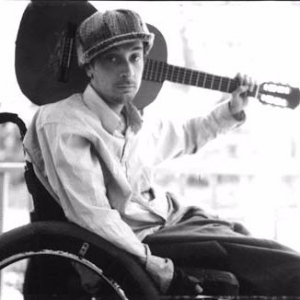Offbeat: Stay Wild Child (2017 Radio Race)
This Offbeat episode was produced for the KCRW 2017 Radio Race. The theme was Down With Whatever and included a special bonus clip of David Bowie performing for special consideration. Everything had to be recorded and mixed within 24-hours.
Tape Extracts:
Unnamed Child: So, what I am making here is a little family.
Garrett Tiedemann (Narration): Thinking is difficult. Getting up is difficult. Planning is difficult.
This morning I left the record player on mistakenly. The old analog hum lingered in time as I got my kids' lunch together. Made me remember what it was like before being a parent. Made me remember my wife sleeping in. Me reading. Time. The air not doing anything.
Instead of taking an idea and planning it out, grabbing a microphone, and going outside; I gave a microphone to a child, to wander around with, carry it. An identity from a child who cannot speaking. Chasing after a child who can.
Garrett (to unnamed child): You're making a family? What are we going to do with the family once you finish coloring them in?
Child: Go to the park!
Garrett (Narration): Ideas over product. Ideas over thought excursion. As I just let the recorder go.
I have this book. It's, in the closest sense, my book. Because they are notes. They are notes that I write as I'm making things, writing things, coming up with ideas. And from time to time I go back through them. Like now when I don't have any idea what I'm doing. Grabbing at words. Trying to screw things together. And when you do that, you're not only taking something and making something anew, but you're reengaging with an idea from a past time. Trying to get a sense of what it was, trying to see its connections to the rest of the page. How a thought got put down and forgotten. How a thought became a thought. Became something obliged to exist.
It's an idea I want to live with, it's an idea I want to store; contain and have as a moment in time.
I did what the instructions said. We went out, did our day, a certain day in the life. I had this idea for a story about a day in the life of living with children. Being a part of children. Being enrapt in the abstraction and curiosity and experimentalism of sound that is children. Children naturally are an orchestra billowing out at the edges.
It's the thing that drives some people nuts and it's the thing that's most stimulating; a house is dead when your children are gone. There is no sound like their presence or their absence.


